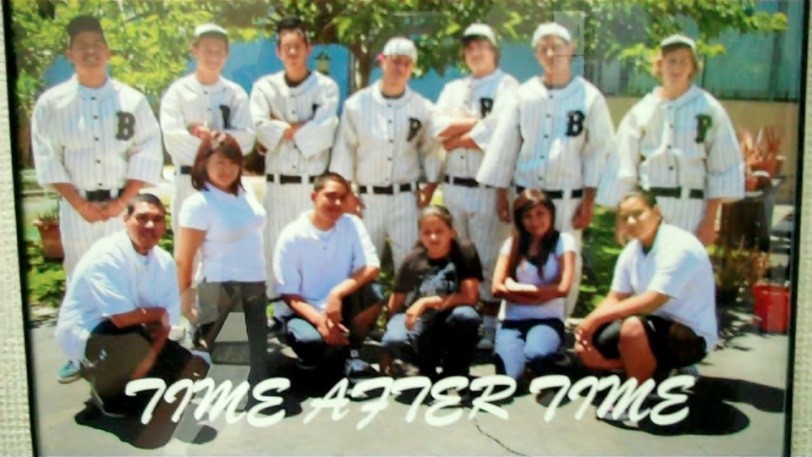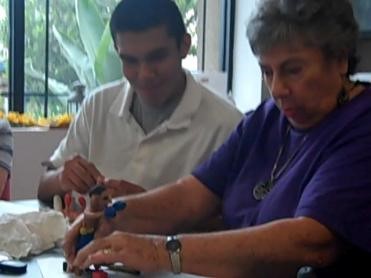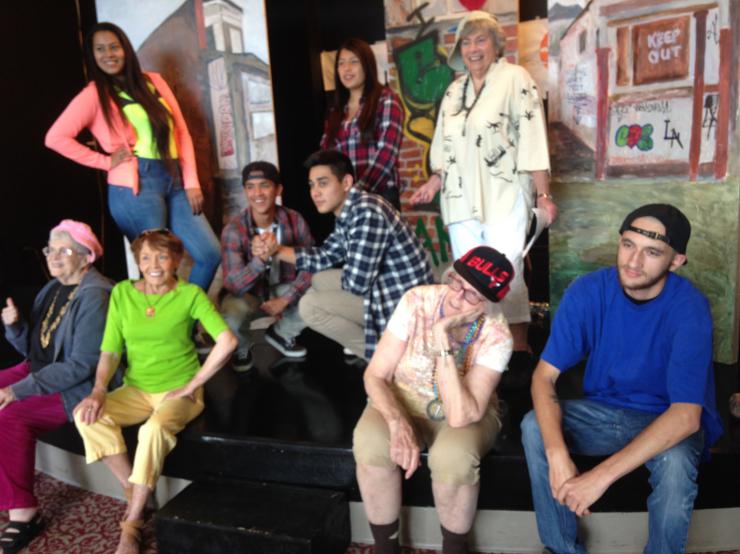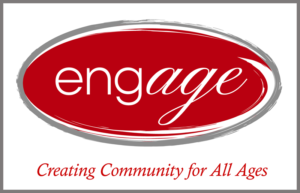
EngAGE C.O.O. Dr. Maureen Kellen-Taylor shares her excellent essay about the EngAGE Mentoring Program, recently published in HowlRound, “a knowledge commons by and for the theatre community,” based at Emerson College. Read more from Maureen on her blog, regener8tion.
Where do older adults fit into our world today? This question is currently one of great concern, politically, socially, and artistically. The growing field of Senior Theatre is one bold response. Through this week’s series, we’ll explore the many facets of this small but growing field. These stories highlight the sometimes-hidden power of the eldest members of our community, and share how much they have to offer to the world through their art. —Lynn Mullin, HowlRound
Learning to Love: Crossing the Generation Divide
by Maureen Kellen-Taylor
I humorously call theatre “the family curse” because I have grandparents, great-grandparents, a daughter, and a grandson all marked by a passion for the theatre. Therefore, I am not surprised when many of the seniors with whom I work fall under its spell. The residents at the Burbank Senior Artists Colony, their appetites whetted by acting and writing classes, formed their own theatre company to write, direct, and act. They continue to receive coaching from professionals and play to full houses for their neighbors. They experience the alchemy that exists between actor and audience.
Through our programming, people who initially were sure they were audience members find themselves onstage performing, converted by the magic, challenged by the complexity, and expanded by the process. They write from their own lives and by acting the roles, they deepen their understanding of family members, friends, and even archenemies. They worry about forgetting lines; they rehearse, argue with the director, and form new connections, but when the curtain opens, they are on!
It is interesting to see how theatre has permeated EngAGE’s Mentoring program. Each semester for the last five years, high school students are selected to work with EngAGE Mentors at the Artists Colony on different arts projects. Many of these students have fallen out of the school system for various reasons and are at risk of dropping out. Their last chance is to attend Burbank Community Day School. There they work with Principal Chris Krohn and her talented team of teachers who are dedicated to enabling students to succeed. Working with the residents of the Artists Colony is an important component of this work.
The project involves a sequence of arts programs, some involving theatre, each with their own finale. For example:
- Making one-minute Claymation movies
- Creating a rap video
- Designing video games about life
- Making a twelve-minute film

A Cast shot of the students who wrote, acted in, and crewed the short black and white film, “Time After Time,” through EngAGE’s Mentoring program. Their Mentors provided inspiration and encouragement behind the camera.
During one finale, we watched a short black and white film on a big screen in the Colony clubhouse. The audience was composed of the students, their families and friends, school district administrators, and the fiercely proud mentors. The film was about a boy dreaming of his grandfather who loved to play baseball, and the big game that his team won. It was a sweet tribute to the relationship between boy and man. The ripple effect beyond the seniors and mentors became apparent when the writer’s father said, “I never thought my son could do that—write a screenplay for such a good film!” I saw him struggle to change his perception of his son as a “problem” and was encouraged by the mentor’s pride in the boy’s talents.

Mentor and student construct models for their Claymation movie. Each pairing wrote, directed, and captured their own one-minute film.
Another project called “Walk in our Shoes” was with Stacy Sims, a Mid-western writer/performer. Her project encouraged students and seniors to write stories that began with the prompt: “If you have never walked in my shoes, you will not know…” The goal was to perform the stories. Over time trust grew, and both mentors and students wrote and shared heartbreaking and heart-warming stories. That finale was a powerful performance of the stories, in which the actors, connected by long red strings, stepped out of a tableau vivant to perform their work. I recall one heart-wrenching moment when one of the girls started her monologue about living with serial abuse. Two seventy-year old women moved downstage to stand with her, conveying their solidarity, powerfully and wordlessly.
The group was amazed when a quiet eighty-year old gentleman, who retired from a successful business, revealed that he had been labeled a problem kid and sent to a special school. These were important life lessons for the young people as they witnessed their elder partners’ resilience and ability to survive. The students learned that it is possible to survive awful experiences and still go on to live successful, happy lives.
The power of theatre is its ability to amplify storytelling into a visceral experience. The grief, anger, and resolution in the stories drew in the audience and connected the actors. Some mentors better appreciated their own capacities through revisiting events in their lives.

The cast of the rap video project. Students learned that rap is poetry and mentors learned they can rap well into their 70s and 80s.
There is now a palpable change of attitude for many of the people living in the Burbank Senior Arts Colony. When the school first opened next door, residents looked down on the playground at recess and discussed with fear the “gang-bangers” that had become their neighbors. Now they talk about “our kids next door,” and the two groups wave to each other.
Mentors themselves understand that they are contributing something of great value. Students, who graduated from the school and went on to college, have returned to share their accomplishments. They write letters to the mentors, or run up to them in stores and give them bear hugs.
Each semester a different group of students join the mentors; however, the mentors remain the same. One mentor said, “We learn to love the kids in a short time and working with them is the most meaningful thing I do.” A student explained that he learned that “old people are not smelly and boring.”
I once heard an educator say that a student needs only a few adults to believe in them to have a chance at success. The Burbank Mentors quickly come to believe in the students. The invisibility that cloaks seniors and divides them from younger generations begins to melt away, and nowhere more so than through the arts.


